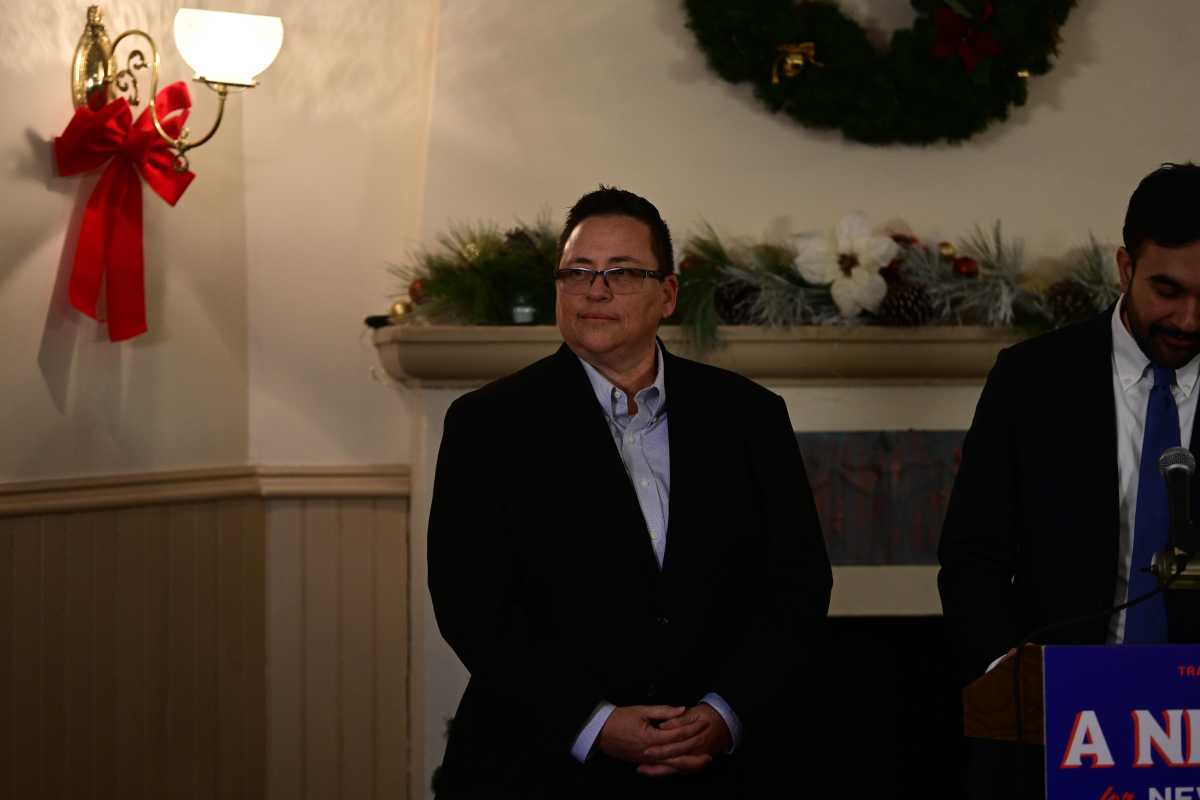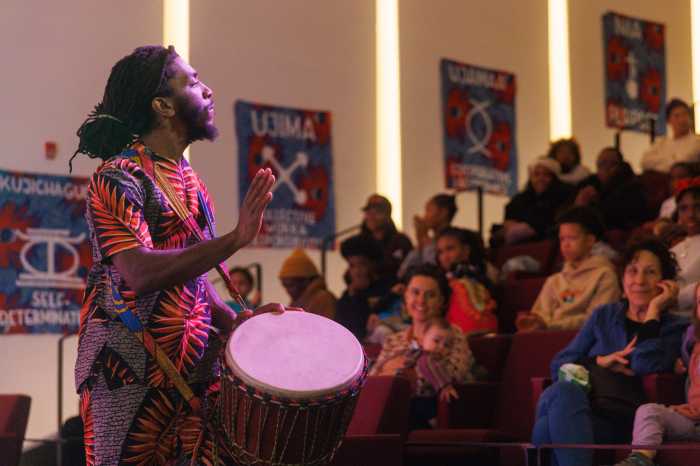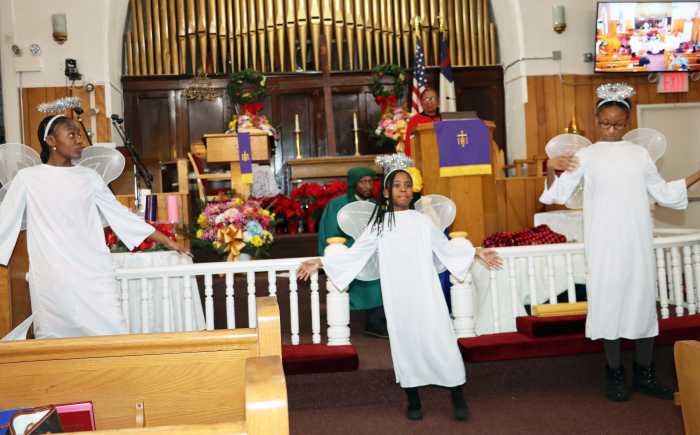Mezzo-soprano ignores disputatious history and concentrates on a composer’s golden arias
Cecilia Bartoli added another frond to her laurels on February 24 when the popular 30-something Italian singer, who changed classical recording strategies and expectations forever with her rise to eminence more than a decade ago, filled Carnegie Hall for an all-Salieri evening.
Even without the tarnishing of his reputation perpetrated by Milos Forman’s lavish film of Peter Shaffer’s rather ghastly play “Amadeus,” Salieri is a tough sell. Like Locatelli, Bax, and Spohr, Salieri is a name in music history that has tended to resonate as “academic” and “dull.”
Bartoli’s performance underscores her professionalism. Avoiding the lure of crossing over into commercial recordings or capitalizing on endless repeats of her initial triumphs with Rossini, Mozart, and Italian songs, Bartoli has carved a niche as the excavator of vast swathes of pre-Romantic music, much of it unheard for centuries. Having a musicologist for a boyfriend must help, but Bartoli herself has a masterful taste in musical collaborators. As a result, she has produced illuminating recordings of Vivaldi and Haydn, as well as a supremely recommendable disc of early Gluck arias.
Salieri is unlikely to seep back into the repertory lists of contemporary opera houses, but as witnessed live at Carnegie Hall, perhaps even more than on the requisite CD, the Austrian-born composer certainly commanded a number of interesting musical modes, and crafted a number of arias worthy of further concerts.
I especially liked a contemplative scena from something calld “Palmira, Regina di Persia,” a title that cries out for Maria Montez in full wardrobe. The singer more or less conducted the fine Orchestra of the Age of Enlightenment with her very expressive shoulders.
A veritable cascade of daffy “Pee Wee’s Playhouse” charm, Bartoli produces a brighter and somewhat shallower tone than in her initial CDs (and American appearances). She can encompass high Cs and even D flats, and for all practical purposes she might as well bill herself as a soprano. She wields astounding facility in coloratura, though her manner of zipping like a pinball around all those notes (and certainly of trilling) is anything but orthodox. Sometimes the vibrato pulsates so much in rapid figures that you don’t always know what note she’s on.
But so what? Let Bartoli drive purists crazy. Her style is not the willful, manneristic distortion of the vocal line that several leading vocalists have imposed on the music on the verge of their artistic maturity. What Bartoli chooses to sing has been to our enrichment.
Christoph Eschenbach and the Philadelphia Orchestra continued their “Mahler’s Influence” festival on February 26 with Zemlinsky’s Lyric Symphony, an impressive work which is deservedly gaining a frequency of performance. (It would be nice if the same could be said about Zemlinsky’s high intensity operas, though Dr. Botstein and the American Symphony offered a bang-up “Der Zwerg” a few seasons back.) Zemlinsky, like Mahler, crafted a new kind of symphony, with the seven movements all bearing texts from Tagore: four songs for the baritone and three for the soprano. The vocal writing is not as tunefully memorable as Mahler’s (nothing to match “Das Lied von der Erde” s soul-wrenching “Abschied” here) but it’s very difficult, since the composer unleashes veritable storms in the huge orchestra. Whipped up by Eschenbach, the Philadelphia played at something near its best, that is thrilling to hear, but no easy feat for the vocal soloists to execute, both of whom were making local debuts.
Melanie Diener, who has performed some Mozart at the Met, has a beautiful, somewhat placid-sounding middleweight lyric soprano good for all the Germanic “good girls,” like Weber’s Agathe and Wagner’s Eva. She’s been compared to Gundula Janowitz, and the comparison holds up, though Diener’s voice doesn’t quite have the Austrian soprano’s gossamer tonal beauty. Diener is essentially an “instrumental” kind of singer—the Tagore poems did not get a particularly interesting treatment—and, like Janowitz, experiences some constriction on topmost notes.
I would like to hear Diener again under less orchestral pressure. The one time I heard her with piano, at an all-Schumann recital at London’s Wigmore Hall, she gave a very good showing.
Diner’s compatriot Dietrich Henschel has made a considerable name for himself as yet another young baritone questing for the mantle of Lieder titan Dietrich Fischer-Dieskau. Of this growing crowd, Andreas Schmidt—who joins Eschenbach in the Philadelphia’s concert of “Parsifal,” Act III next January—sounds the most like the revered senior artist. Henschel certainly channels certain of Fischer-Dieskau’s more appealing vocal mannerisms and few of the grating ones.
There’s a pleasant reediness at relaxed volume and an intelligent, personalized response to the poetry. However, Henschel was simply overwhelmed by the orchestral climaxes Zemlinsky thrusts again and again on his soloist. Bo Skovhus managed to “power sing” his way through this piece with the Cleveland a few years back. While it is exciting to hear, Henschel’s ducking for cover may prove the wiser course in career terms.
David Shengold (shengold@yahoo.com) writes for Playbill, Time Out New York, and Opera News, among other venues.


































